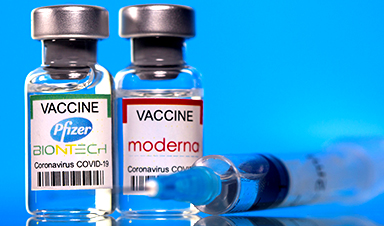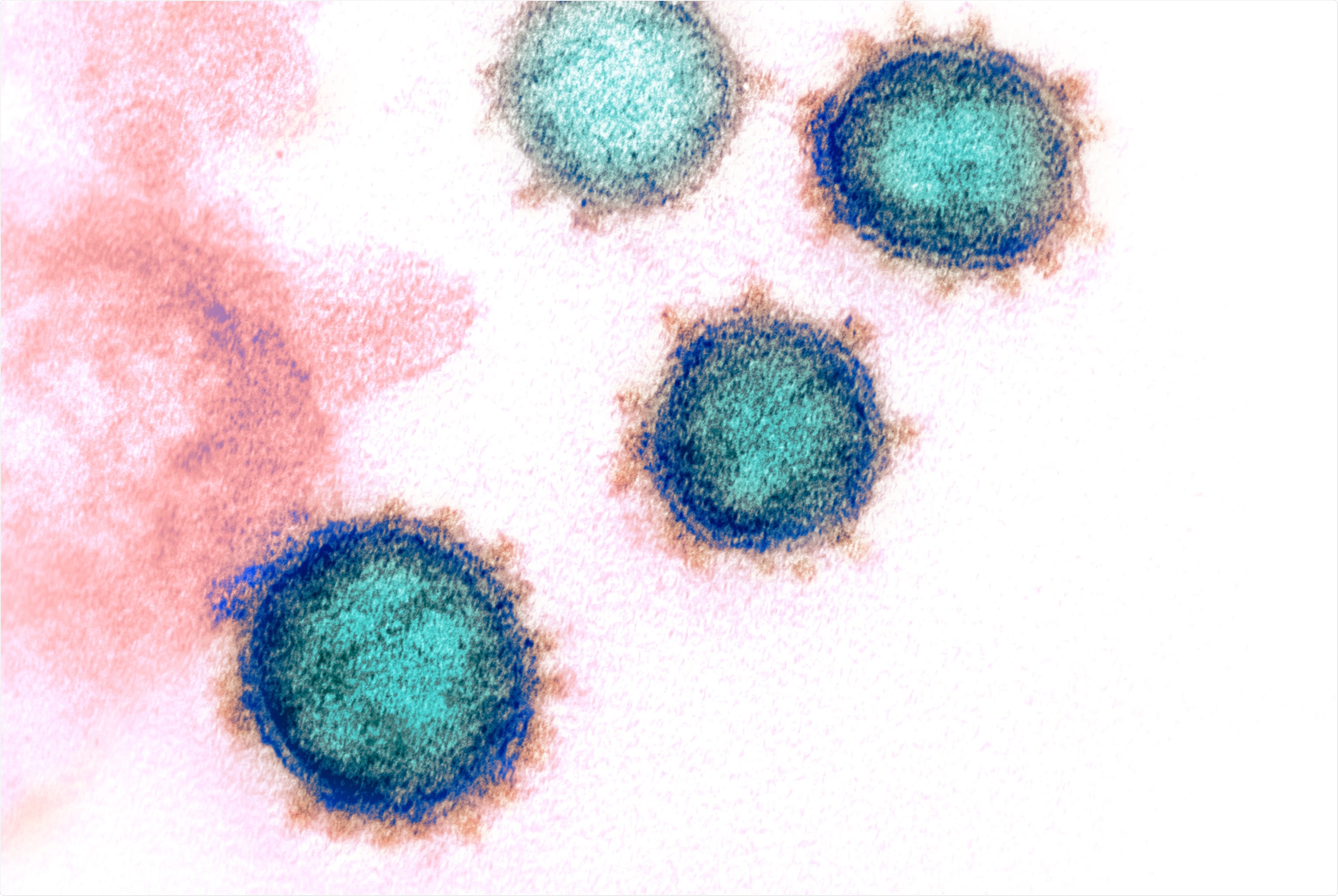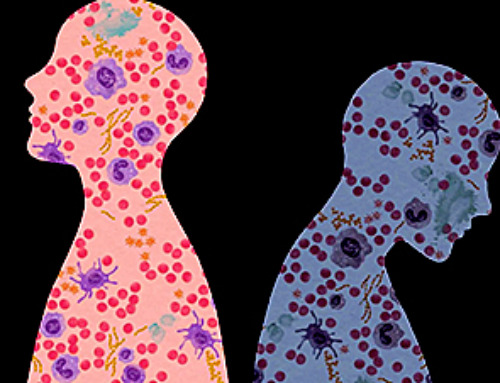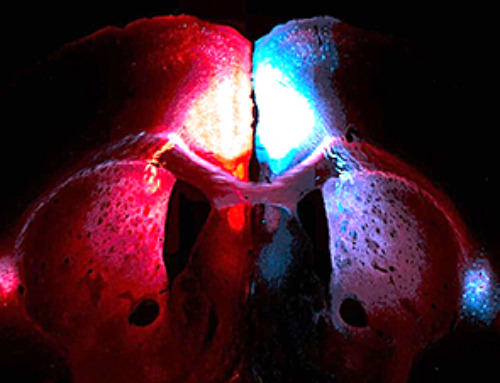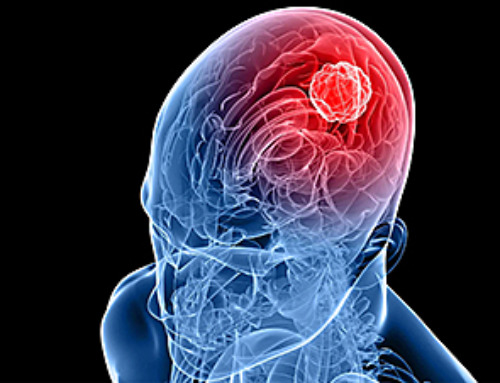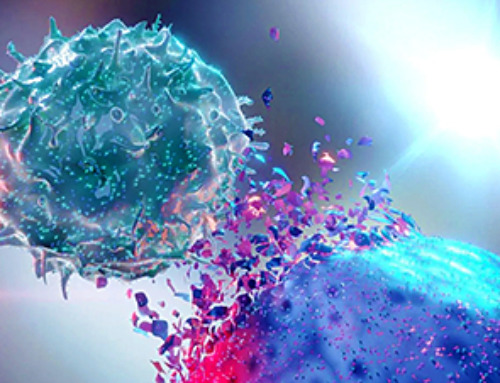Researchers in the United States have conducted a study showing that the coronavirus disease 2019 (COVID-19) vaccines developed by Pfizer-BioNTech and Moderna generate a coordinated adaptive immune response that is capable of eliciting recall responses to future infection with severe acute respiratory syndrome coronavirus 2 (SARS-CoV-2).
The team from the University of California found that immunization with either Pfizer-BioNTech’s BNT162b2 or Moderna’s mRNA-1273 vaccine-induced enrichment of spike-specific B cells.
The viral spike protein mediates the initial stage of the SARS-CoV-2 infection process and is the primary target of antibodies following natural infection or vaccination.
Ilhem Messaoudi and colleagues say that vaccination also activated CD4 T cells and induced robust antigen-specific polyfunctional CD4 T cell responses.
Furthermore, clonally expanded CD8 T cells were observed in all vaccine recipients.
A pre-print version of the research paper is available on the bioRxiv* server, while the article undergoes peer review.
Vaccination and infection provide two different pathways to immunity
Since the COVID-19 outbreak first began in December 2019 in Wuhan, China, intense global efforts to rapidly develop effective vaccines against the causative agent SARS-CoV-2 have led to the emergency use authorization of several vaccines.
These include the messenger RNA- (mRNA) based vaccines developed by Pfizer (BNT162b2) and Moderna (mRNA-1273). Findings from clinical trials indicated that a 95% maximal protection is achieved within 1 to 2 months following the second dose of either vaccine, including protection against several circulating SARS-CoV-2 variants of concern.
However, the mechanisms by which these vaccines elicit long-lasting cellular immune responses to the virus remain poorly understood.
Natural infection and vaccination provide two different pathways to immunity, which studies have previously shown to be characterized by distinct T and B cell responses.
“Additional studies that integrate functional, transcriptional, and repertoire analysis of the memory immune cell response to COVID-19 mRNA vaccination are needed,” writes Messaoudi and colleagues.
What did the researchers do?
The team used single-cell RNA sequencing and functional assays to assess humoral (antibody) and cellular responses to two doses of either the Pfizer-BioNTech or Moderna mRNA vaccine (14 days following a second dose) in four individuals. The results were compared with the immune responses observed in three convalescent individuals who had experienced asymptomatic or mild infection.
What did the study find?
Both infection and vaccination induced anti-SARS-CoV-2 binding and neutralizing antibodies.
These antibodies were detected as early as two weeks following a first vaccine dose, with levels increasing several-fold after a second dose.
While neutralizing antibody titers following the first vaccine dose were comparable to those among convalescent individuals, significantly higher levels were observed in the vaccinees following the booster dose.
However, several important B cell adaptations were shared between vaccinees and convalescent individuals.
Analysis by flow cytometry revealed a reduction in the level of naïve B cells, but an expansion of memory B cells in both groups.
Additionally, single-cell RNA sequencing showed a reduction in IgA+ memory B cells following vaccination, a finding that has recently been described for convalescent individuals.
News
This Is Why the Same Virus Hits People So Differently
Scientists have mapped how genetics and life experiences leave lasting epigenetic marks on immune cells. The discovery helps explain why people respond so differently to the same infections and could lead to more personalized [...]
Rejuvenating neurons restores learning and memory in mice
EPFL scientists report that briefly switching on three “reprogramming” genes in a small set of memory-trace neurons restored memory in aged mice and in mouse models of Alzheimer’s disease to level of healthy young [...]
New book from Nanoappsmedical Inc. – Global Health Care Equivalency
A new book by Frank Boehm, NanoappsMedical Inc. Founder. This groundbreaking volume explores the vision of a Global Health Care Equivalency (GHCE) system powered by artificial intelligence and quantum computing technologies, operating on secure [...]
New Molecule Blocks Deadliest Brain Cancer at Its Genetic Root
Researchers have identified a molecule that disrupts a critical gene in glioblastoma. Scientists at the UVA Comprehensive Cancer Center say they have found a small molecule that can shut down a gene tied to glioblastoma, a [...]
Scientists Finally Solve a 30-Year-Old Cancer Mystery Hidden in Rye Pollen
Nearly 30 years after rye pollen molecules were shown to slow tumor growth in animals, scientists have finally determined their exact three-dimensional structures. Nearly 30 years ago, researchers noticed something surprising in rye pollen: [...]
NanoMedical Brain/Cloud Interface – Explorations and Implications. A new book from Frank Boehm
New book from Frank Boehm, NanoappsMedical Inc Founder: This book explores the future hypothetical possibility that the cerebral cortex of the human brain might be seamlessly, safely, and securely connected with the Cloud via [...]
How lipid nanoparticles carrying vaccines release their cargo
A study from FAU has shown that lipid nanoparticles restructure their membrane significantly after being absorbed into a cell and ending up in an acidic environment. Vaccines and other medicines are often packed in [...]
New book from NanoappsMedical Inc – Molecular Manufacturing: The Future of Nanomedicine
This book explores the revolutionary potential of atomically precise manufacturing technologies to transform global healthcare, as well as practically every other sector across society. This forward-thinking volume examines how envisaged Factory@Home systems might enable the cost-effective [...]
A Virus Designed in the Lab Could Help Defeat Antibiotic Resistance
Scientists can now design bacteria-killing viruses from DNA, opening a faster path to fighting superbugs. Bacteriophages have been used as treatments for bacterial infections for more than a century. Interest in these viruses is rising [...]
Sleep Deprivation Triggers a Strange Brain Cleanup
When you don’t sleep enough, your brain may clean itself at the exact moment you need it to think. Most people recognize the sensation. After a night of inadequate sleep, staying focused becomes harder [...]
Lab-grown corticospinal neurons offer new models for ALS and spinal injuries
Researchers have developed a way to grow a highly specialized subset of brain nerve cells that are involved in motor neuron disease and damaged in spinal injuries. Their study, published today in eLife as the final [...]
Urgent warning over deadly ‘brain swelling’ virus amid fears it could spread globally
Airports across Asia have been put on high alert after India confirmed two cases of the deadly Nipah virus in the state of West Bengal over the past month. Thailand, Nepal and Vietnam are among the [...]
This Vaccine Stops Bird Flu Before It Reaches the Lungs
A new nasal spray vaccine could stop bird flu at the door — blocking infection, reducing spread, and helping head off the next pandemic. Since first appearing in the United States in 2014, H5N1 [...]
These two viruses may become the next public health threats, scientists say
Two emerging pathogens with animal origins—influenza D virus and canine coronavirus—have so far been quietly flying under the radar, but researchers warn conditions are ripe for the viruses to spread more widely among humans. [...]
COVID-19 viral fragments shown to target and kill specific immune cells
COVID-19 viral fragments shown to target and kill specific immune cells in UCLA-led study Clues about extreme cases and omicron’s effects come from a cross-disciplinary international research team New research shows that after the [...]
Smaller Than a Grain of Salt: Engineers Create the World’s Tiniest Wireless Brain Implant
A salt-grain-sized neural implant can record and transmit brain activity wirelessly for extended periods. Researchers at Cornell University, working with collaborators, have created an extremely small neural implant that can sit on a grain of [...]
